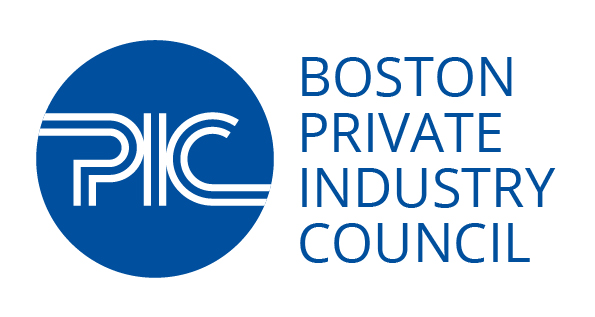Resilient, Responsive, Forward-looking
2021 was an extraordinary year. Amidst a pandemic, Boston became more focused than ever on addressing inequity, culminating in a historic mayoral election and the promise of transformational change. In this context, the Boston Private Industry Council (PIC) expanded and innovated on several fronts, even as it met its core responsibilities. As we move into 2022, the PIC is ready to make a difference under the leadership of Mayor Michelle Wu.
The PIC brings the city’s neighborhood residents, both youth and adults, into the Greater Boston economy. Looking ahead, we are seeing new momentum among our employer partners as they seek to diversify their companies and institutions. At the same time, the federal government is investing an unprecedented amount of funding in workforce development through the American Rescue Plan Act of 2021 (ARPA). The need for skilled employees and the availability of training dollars presents a unique opportunity for Boston residents to access higher paying careers.
As Boston’s workforce development board and school-to-career intermediary organization, the PIC is uniquely positioned for both influence and action by:
- Connecting high school students to jobs and internships, college students to success coaching, the inadequately employed to employment and occupational training.
- Convening employers, government officials, educators, and community leaders in order to close the loop between policy and practice, advise public officials, and take action collectively.
- Measuring progress and conducting research to guide strategic initiatives and inform policy development.
This report describes how the PIC supported Boston youth, adults, and employers in 2021 while helping to lay the foundation for a more equitable Boston – a city and an economy that benefits fully from the many backgrounds, perspectives, and skills of its diverse population.
Workforce Development
The PIC, Boston’s MassHire Workforce Board, charters career centers and oversees the distribution of federal funding and training vouchers in partnership with the Mayor’s Office of Workforce Development (OWD). Throughout the pandemic, the workforce system – which includes the PIC, OWD, career centers, training partners, and employers – has demonstrated responsiveness, commitment, and collaboration as Boston worked to meet the changing needs of a workforce in crisis.
Learn More
School-To-Career
For young people, paid internships offer an opportunity to build critical skills that complement academic learning – skills like communication, collaboration, time management, and problem solving. Internships also allow a student to earn money, to imagine a future career, and to learn about the education and training necessary to get there. In 2021, PIC employers delivered all of the above for students, often by developing new ways to organize work and professional development in virtual settings.
Learn More
Re-Engagement
Re-engagement helps young adults who have left school or do not attend regularly reclaim their potential – benefiting themselves, their communities, and society. Since 2006, the PIC has focused on dropout reduction, both prevention and re-engagement, in partnership with the BPS. The results are very positive. 1,936 high school students left school without a diploma during school year 2015-16. That number fell to 791 during the pre-pandemic school year 2018-19. Now Boston faces a whole new set of challenges, both for disconnected high school students and for BPS graduates who are inadequately employed and not in college or occupational training.
Learn More
Postsecondary Success
For over a decade, the PIC has been coaching BPS graduates as part of the Success Boston college completion initiative. As students and colleges deal with the effects of the pandemic, PIC postsecondary coaches are helping students to persist academically, balance education and employment, and imagine a career path beyond college.
Learn More
